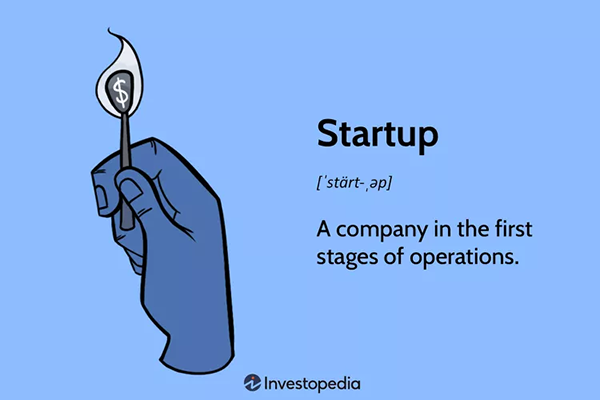Investing in the entrepreneurial venture space is not for the faint-hearted – it offers potentially high returns, but the risks are notably higher too.
In this article, we’ll talk about investing in startups – from recognizing promising prospects and navigating the complex world of venture capital to understanding the role of angel investors and the importance of a diversified portfolio.
We will also discuss the risks involved and how to wisely determine when is the right time to withdraw your investments.
If you’re considering delving into startup investments or just looking to brush up on your knowledge, continue reading.
The Basics of Startup Investing
Startup is a term typically used for a company in the first stages of its operations. These companies are often initially bankrolled by their entrepreneurial founders as they attempt to capitalize on developing a product or service for which they believe there’s a demand.
But before you look up office rental in Dallas or business for sale Edmonton to kickstart your entrepreneurial journey, you have to understand that startup investing is a high-risk, high-reward game.
Unlike traditional investments, putting your money in startups can offer significant returns, but it’s also more susceptible to loss. So, tread carefully and arm yourself with knowledge before diving in.
Recognizing a Promising Startup
Learn how to spot a promising startup worth investing in. One key factor to look out for is the team. A skilled, passionate, and tenacious team can turn a good idea into a great business. Look for evidence of their commitment, expertise, and ability to adapt.
The business model is another crucial aspect. Does the startup have a clear, viable plan to generate revenue and sustain growth? Are they addressing a significant, underserved market?
Lastly, take a close look at the product or service itself. Is it innovative, and does it offer a unique value proposition? Can it stand out in a crowded market?
Navigating the World of Venture Capital
Venture capital, often the lifeblood of startups, can be a labyrinth to navigate without the right knowledge and strategies. You must understand its nuances, the language spoken, and the rules of the game.
Remember that venture capitalists (VCs) aren’t just moneybags; they’re partners who can offer guidance and resources. They’re looking for scalable businesses, strong teams, and unique ideas. So, align your pitch to these interests.
Do your research; know the VC’s portfolio, their investment style, and values. Build relationships; networking is key in this world. Be prepared for rigorous due diligence.
And remember, VCs aren’t your only option. Angel investors, crowdfunding, and loans are all viable alternatives.
Risks Involved in Startup Investment
As mentioned earlier, investing in a startup isn’t without its risks. Here are three significant risks to bear in mind:
- Financial Risk: There’s a chance you might lose your entire investment if the startup fails.
- Liquidity Risk: Unlike stocks, startup investments can’t be sold off quickly. You’re in for the long haul.
- Dilution Risk: Future funding rounds can dilute your stake, reducing your influence and returns.
The Role of Angel Investors
Angel investors are often the first ones to take a financial leap of faith in your startup. These individuals provide capital, usually in exchange for convertible debt or ownership equity.
They are typically experienced entrepreneurs or executives themselves, who can provide valuable guidance and connections along with funding.
They’re ready to back high-risk ventures, expecting a high return if your startup succeeds. They’re your early champions, often stepping in when you’re too small for venture capitalists.
However, while they offer resources and expertise, they’ll expect a say in how you run your business.
Evaluating the Startups Management Team
To make a thorough assessment of the startup management team, consider these three points:
- Track Record: Have they successfully run businesses before? Past performance often predicts future results.
- Skills and Expertise: Does the team possess the necessary skills and knowledge to successfully execute the business plan?
- Team Chemistry: How well do the team members work together? A cohesive team can overcome challenges more effectively.
Importance of a Diversified Investment Portfolio
In building your investment strategy, a diversified portfolio’s resilience can be your strongest safeguard against financial turbulence.
Diversification is a strategy that can help you manage your risk and potentially increase your returns.
By spreading your investments across a variety of asset types and sectors, you’re not putting all your eggs in one basket. If one investment performs poorly, others may perform well, potentially offsetting the impact. It’s like a safety net for your hard-earned money.
Exit Strategies: When and How to Sell
You should know when and how to sell your investments in entrepreneurial ventures. Here are three key points to consider:
- Market Conditions: Always keep an eye on market trends. If you see a downward trajectory, it might be a good time to sell.
- Company Performance: Regularly review the startup’s financial health. If it’s consistently underperforming, consider selling your shares.
- Personal Financial Goals: Your objectives should guide your exit strategy. If you’ve reached your target ROI, it could be time to sell.
Conclusion
Investing in startups can be risky but rewarding. Spot the diamonds in the rough, navigate venture capital, and understand the role of angel investors.
Analyze the management team carefully and diversify your portfolio. And remember, knowing when and how to sell is key.
With careful planning, informed decisions, and a dash of courage, you can make wise investments in entrepreneurial ventures.






